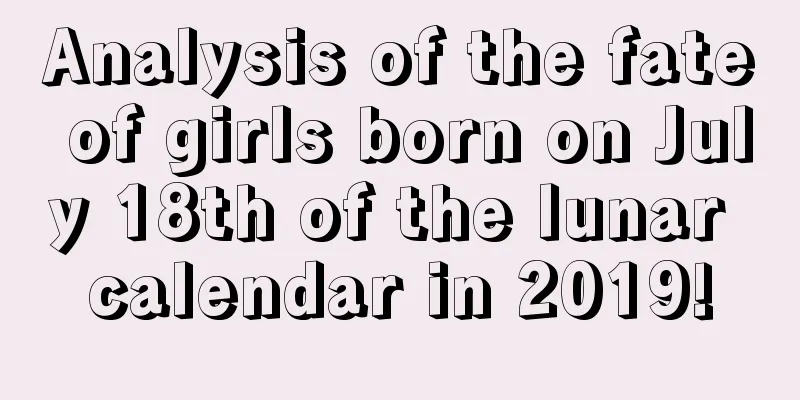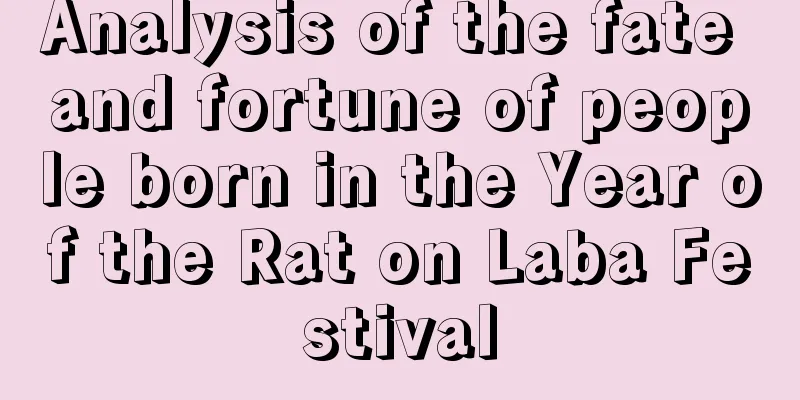What are the customs and habits of the Han Chinese during the Spring Festival?

Introduction: Our country is a multi-ethnic country, therefore there are different ethnic cultures and customs. The Spring Festival is our important traditional festival. The Han people are the main ethnic group in our country. So, what customs do the Han people have in celebrating the New Year? Now, let’s follow the editor to take a look. New year, new atmosphere, there are countless topics about the Spring Festival. If you want to know more about the Lunar New Year, please continue to pay attention to Mr. Shui Mo’s exclusive Spring Festival special articles for you! The Spring Festival of the Han nationality is the most important festival of the year. Visiting ancestral tombs, going to flower markets, celebrating the New Year, preparing New Year goods, pasting Spring Festival couplets, New Year pictures, paper-cuts, pasting blessing characters, lighting candles, lighting bonfires, setting off firecrackers, staying up all night, giving out lucky money, paying New Year's greetings, and visiting relatives. The third day of the first lunar month is the day when Nuwa created sheep, so it is called "Sheep Day." On this day, people cannot kill sheep. If the weather is good, it means that the sheep will be well raised in the year and the sheep farmers will have a good harvest.Burning Door God PaperIn the old days, on the third day of the New Year, pine and cypress branches and door gods and paper notes hung during the festival were burned together to indicate that the new year was over and it was time to start a new life. There is a proverb that goes "After burning the door god paper, you will have trouble finding your own way."Guzi's birthdayPeople believe that the third day of the first lunar month is the birthday of millet. On this day, they offer sacrifices and pray for a good harvest, and do not eat rice.Little New YearThat is Tianqing Festival. A court festival in the Song Dynasty. In the first year of Dazhong Xiangfu during the reign of Emperor Zhenzong of Song, it was said that a book from heaven had descended to the earth. So Emperor Zhenzong issued an edict to designate the third day of the first lunar month as Tianqing Festival, and officials were given a five-day holiday. Later it was called Xiaonianchao, and people did not sweep the floor, beg for fire or draw water, just like Suichao.Post "Red Mouth"In southern China, people put up a "red mouth" sign on the morning of the third day of the Lunar New Year, as it is believed that quarrels are likely to occur on this day and it is not appropriate to pay New Year's greetings. The so-called "red mouth" is usually a red paper strip about seven or eight inches long and one inch wide, with some auspicious words written on it for safe entry and exit (the content has a certain format, for example: "On the third day of the first lunar month in the year of Jiaxu in 1994, when incense is burned in front of the gods, the nails at the front door will be broken, and all men and women will be red-mouthed, thieves will be stolen, and all disasters will be gone. May good luck return to heaven"). It is pasted on the top of the front and back doors, and another piece is placed on the garbage to be taken out and thrown away. These garbage are accumulated on the first and second days of the New Year. They must be cleaned up and thrown away on the third day. Otherwise, it would be like letting the gold, silver and treasures in the house flow out. In short, pasting the "Red Mouth" is to make people feel psychologically that they can travel safely throughout the year, without quarrels with others or various unfortunate disasters, and the family will have more wealth and treasure, and everything will be as they wish."Send New Year"Usually a farewell ceremony is held at night to send the gods and ancestors back to heaven.The fifth day of the first lunar monthThe fifth day of the first lunar month is commonly known as Po Wu. According to folk customs, many taboos before the fifth day of the New Year can be broken after this day. According to the old custom, people have to eat "water dumplings" for five days, which is called "boiled buns" in the north. Nowadays, some families only eat it for three or two days, some eat it every other day, but there is no one who does not eat it. This is true from the mansions of princes to the small households in the streets and alleys, and even when entertaining guests. Women no longer avoided visiting each other's homes and began to visit each other to wish each other a happy new year and congratulate each other. Newly married women return to their parents' home on this day. It is said that it is not advisable to do anything on the fifth day of the New Year, otherwise you will encounter failure in the whole year. In addition to the above taboos, the customs of the fifth day of the New Year mainly include sending away poverty, welcoming the God of Wealth, and opening the market for trade. New Year Pictures: God of WealthWorship the God of WealthPeople in the south worship the God of Wealth on the fifth day of the first lunar month. According to folklore, the God of Wealth is the God of Five Roads. The so-called five roads refer to east, west, south, north and center, meaning that you can make money by going out of any of the five roads.Gu Lu of the Qing Dynasty wrote in "Qing Jia Lu": "The fifth day of the first lunar month is the birthday of the God of Road. Golden gongs and firecrackers, sacrificial animals and wine are all on display. In order to win a fortune, people must get up early to welcome him, which is called "receiving the God of Road." He also said: "Today's God of Road is the wandering god among the Five Sacrifices. The so-called five directions are east, west, south, north and center." In Shanghai, there is a custom of "grabbing the God of Road" during the old year. At midnight on the fourth day of the first lunar month, prepare sacrificial animals, cakes, fruits, incense and candles, ring gongs and drums, burn incense and worship, and worship the God of Wealth respectfully. It is commonly believed that the fifth day is the birthday of the God of Wealth. In order to compete for profits, people welcome him on the fourth day, which is called "抢路头" or "迎财神". The Five Sacrifices are the household gods, kitchen gods, earth gods, door gods and travel gods. The so-called "Lu Tou" refers to the god among the Five Sacrifices. When welcoming the God of Wealth, one must offer a sheep's head and a carp. Offering a sheep's head means "good luck", while offering a carp means that "fish" and "surplus" are homophones, which is auspicious. People firmly believe that as long as they can get the appearance of the God of Wealth, they will become rich. Summary: Through the above article content, we have deeply felt that the Han nationality has such rich and colorful New Year customs. However, this adds to the atmosphere of the New Year and makes the festive atmosphere more festive. I hope that such customs and habits can be passed down! |
<<: Feng Shui knowledge you must know when worshipping gods and ancestors during the Spring Festival
>>: Which days around the Spring Festival are suitable for moving?
Recommend
Is it suitable to pick up a car on the eighth day of the eighth lunar month in 2020? Is this an auspicious day?
The eighth month of the lunar calendar is also kn...
Is the lunar August 24th, 2020, a good date in the lunar calendar? Is it an auspicious day?
The eighth month of the lunar calendar is Mid-Aut...
Can I travel on the third day of the ninth lunar month in 2017?
The ninth month of the lunar calendar is the harve...
The position of the God of Wealth on the 20th day of the fifth lunar month in 2018
The fifth month of the lunar calendar in 2018 als...
What is the fate of a girl born on April 11th of the lunar calendar in 2021? Is it a good fate?
Sophora japonica flowers bloom in April, so it is ...
How is New Year's Day 2018? Can I start renovation on New Year’s Day 2018?
Introduction: 2018 is coming in the blink of an ey...
What constellation is the twelfth day of the first lunar month in 2018? What are the advantages of Pisces men?
Introduction: Constellation is one of the indispen...
What is the Mid-Autumn Festival also called? Is it auspicious to get married the day before the Mid-Autumn Festival in 2020?
Introduction: It’s Mid-Autumn Festival again in a ...
Analysis of the God of Wealth's position on the 26th day of the 12th lunar month in 2019
Analysis of the position of the God of Wealth on ...
Is it suitable to go to the temple to pray on the day before Grain in Ear on April 13th, the leap year of Gengzi in 2020?
Is it suitable to go to the temple to pray on the ...
Is the sixth lunar month of 2022 a big month or a small month? Are there thirty days?
Speaking of lunar months, I believe many of my fri...
When does the 2018 New Year's Day holiday start? What are the New Year’s Day greetings?
New Year, new atmosphere. We are about to usher in...
What not to do around the Winter Solstice in 2018, analysis of the origin of the Winter Solstice!
Introduction: The Winter Solstice is an important ...
What will be the temperature during the Rain Water solar term in 2019? Will the weather get warmer?
Rain Water is the second solar term among the 24 s...
What day is the day before Mid-Autumn Festival? Is it a good idea to get married the day before Mid-Autumn Festival in 2020?
Introduction: Mid-Autumn Festival is one of the im...









